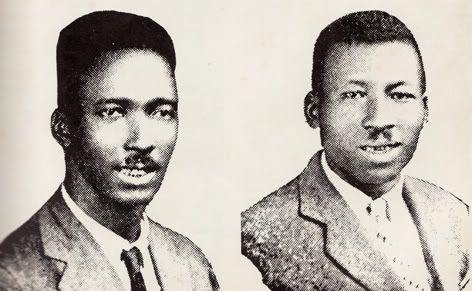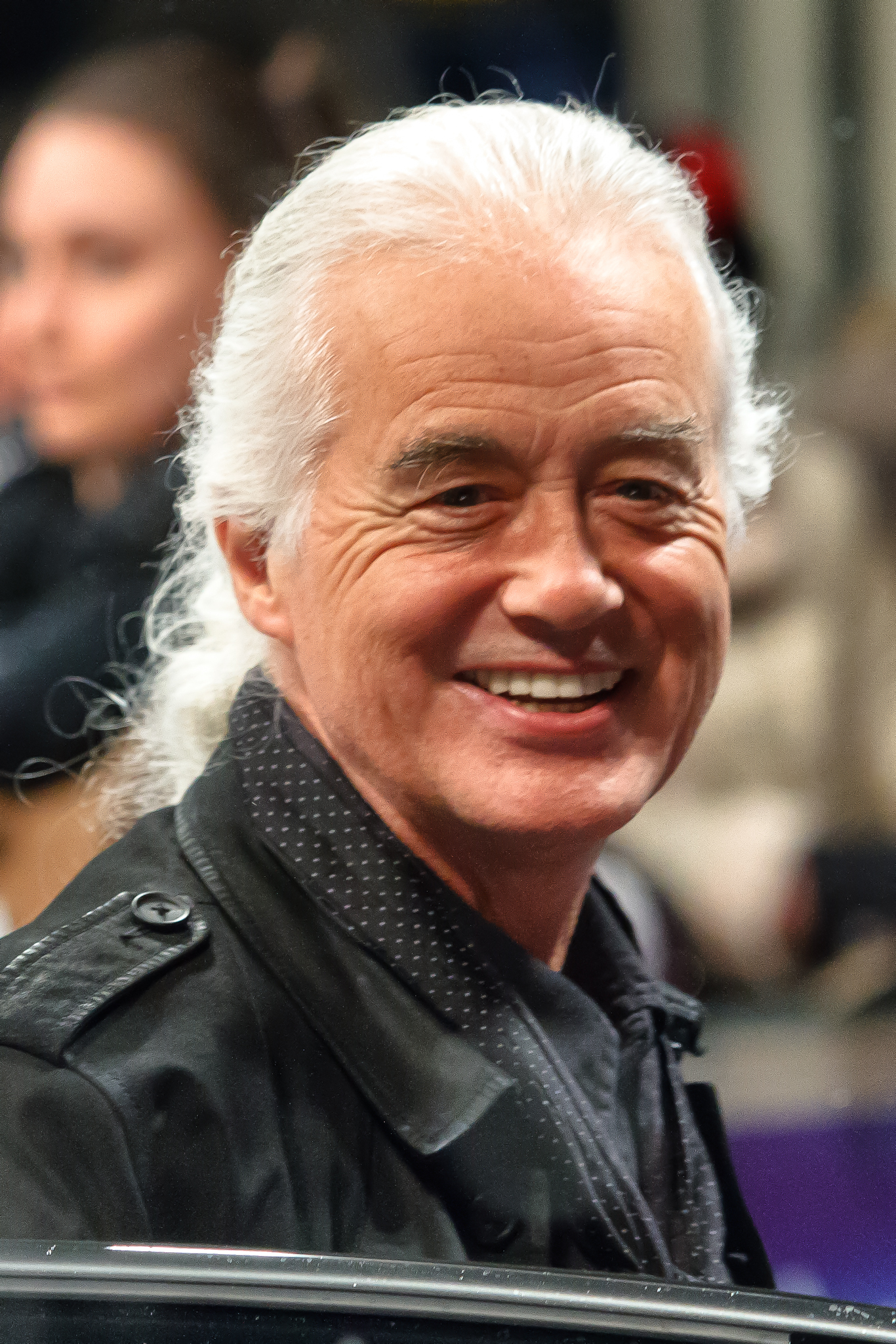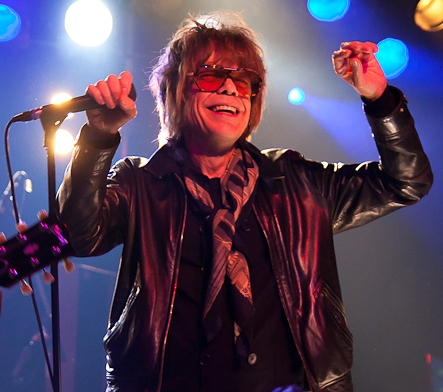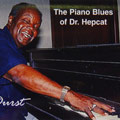1901 Ishman Bracey*
1913 Albert Lavada "Dr. Hepcat" Durst*
1919 Frank Hovington*
1935 Buddy Scott*
1941 Barbara Carr*
1942 Papa Don McMinn*
1944 Jimmy Page*
1950 David Johansen*
1957 Cripple Clarence Lofton+
1994 Silas Hogan+
2015 Willie Popsy Dixon+
Happy Birthday
Ishman Bracey *09.01.1901
Tommy Johnson.....................................Ishman Bracey
Ishman Bracey (* 9. Januar 1901 in Byram, Mississippi; † 12. Februar 1970 in Jackson, Mississippi), bisweilen auch Ishmon Bracey genannt, war ein US-amerikanischer Blues-Sänger und Gitarrist. Er gilt als einer der bedeutendsten Vertreter des Delta Blues, zusammen mit Blues-Legenden wie Charlie Patton, Tommy Johnson, Papa Charlie McCoy und Skip James. Bracey lernte das Gitarrespielen von Reverend "Mississippi" Ruben Lacy. Bereits früh spielte er auf Festen und in Juke Joints. 1928 machte er zusammen mit Charlie McCoy Aufnahmen für Victor, 1929 mit den "New Orleans Nehi Boys" für Paramount. Im ganzen nahm er 12 Stücke auf, vier davon liegen auch in Alternativaufnahmen vor. Zwei weitere Titel sind bekannt, Low Down Blues und Run to Me at Night, jedoch verschollen.
Auch nach seiner kurzen Plattenkarriere trat Bracey weiterhin auf, oft zusammen mit Tommy Johnson. In den 1940ern wurde er religiös und spielte keinen Blues mehr, auch als er Ende der 1950er "wiederentdeckt" wurde. Allerdings gab er über die frühe Blues-Szene Auskunft und trug zur Wiederentdeckung von Skip James bei.
Ishman Bracey starb 1970 in Jackson, Mississippi.
Ishmon Bracey (January 9, 1901 – February 12, 1970[1]) was an American blues singer and guitarist from Mississippi, considered one of the most important early delta blues performers. With Tommy Johnson, he was the center of a small Jackson, Mississippi group of blues musicians in the 1920s. His name is incorrectly spelled "Ishman" on almost all of his records and in most older sources.[2] [3]
Biography
Bracey was born in Byram, Mississippi, and started playing at local dances and parties around 1917. He also worked as a waterboy on the Illinois Central Railroad.[1] He first recorded in Memphis in 1928 for the Victor label, with Charlie McCoy on second guitar, recording two sessions in February and August that year.[4]
At that time his style had not fully formed and his performances varied considerably, probably in his attempts to become more commercially successful. Bracey's blues "Saturday Blues" and "Left Alone Blues", used interesting variations in the usual three line verse form. Bracey was one of the few Mississippi bluesmen who sang with a nasal tone without embellishment. In "Saturday Blues" he used one of the conventional infidelity themes, but he changed the form of the verses to fit a newer melodic concept. His lyrics loosen up enough to sing about skin creams and powder advertised as being able to lighten dark skin.[citation needed]
He recorded again in 1931 for Paramount Records with a group called the New Orleans Nehi Boys, which included guitarist Charles Taylor. Bracey's total recorded output is only 16 songs, and original copies of his 78-rpm records are among the most valued items sought by blues collectors. "Trouble Hearted Blues" and "Left Alone Blues" are his best known songs.[1]
He was an associate of Tommy Johnson, and the pair performed together in medicine shows in the 1930s. By the time he was "rediscovered" in the late 1950s, he had become a preacher and a performer of religious songs, and was uninterested in recording or discussing his time as a blues performer. However, he did help in the rediscovery of his contemporary Skip James.
Biography
Bracey was born in Byram, Mississippi, and started playing at local dances and parties around 1917. He also worked as a waterboy on the Illinois Central Railroad.[1] He first recorded in Memphis in 1928 for the Victor label, with Charlie McCoy on second guitar, recording two sessions in February and August that year.[4]
At that time his style had not fully formed and his performances varied considerably, probably in his attempts to become more commercially successful. Bracey's blues "Saturday Blues" and "Left Alone Blues", used interesting variations in the usual three line verse form. Bracey was one of the few Mississippi bluesmen who sang with a nasal tone without embellishment. In "Saturday Blues" he used one of the conventional infidelity themes, but he changed the form of the verses to fit a newer melodic concept. His lyrics loosen up enough to sing about skin creams and powder advertised as being able to lighten dark skin.[citation needed]
He recorded again in 1931 for Paramount Records with a group called the New Orleans Nehi Boys, which included guitarist Charles Taylor. Bracey's total recorded output is only 16 songs, and original copies of his 78-rpm records are among the most valued items sought by blues collectors. "Trouble Hearted Blues" and "Left Alone Blues" are his best known songs.[1]
He was an associate of Tommy Johnson, and the pair performed together in medicine shows in the 1930s. By the time he was "rediscovered" in the late 1950s, he had become a preacher and a performer of religious songs, and was uninterested in recording or discussing his time as a blues performer. However, he did help in the rediscovery of his contemporary Skip James.
Jimmy Page *09.01.2013
 James Patrick „Jimmy“ Page, OBE (* 9. Januar 1944 in Heston (heute zu London), England) ist ein britischer Musiker. Er wurde vor allem als Gründer, E-Gitarrist und Produzent der britischen Hardrock-Gruppe Led Zeppelin (1968–1980) bekannt, war aber auch Mitglied der Rockbands The Yardbirds (1966–1968) und The Firm (1984–1986). Auch war er ein vielseitiger und sehr gefragter Studiomusiker.
James Patrick „Jimmy“ Page, OBE (* 9. Januar 1944 in Heston (heute zu London), England) ist ein britischer Musiker. Er wurde vor allem als Gründer, E-Gitarrist und Produzent der britischen Hardrock-Gruppe Led Zeppelin (1968–1980) bekannt, war aber auch Mitglied der Rockbands The Yardbirds (1966–1968) und The Firm (1984–1986). Auch war er ein vielseitiger und sehr gefragter Studiomusiker.2005 erhielt Page in Anerkennung der Verdienste seiner Wohltätigkeitsarbeit in Brasilien von der britischen Königin die Ernennung zum Officer des Order of the British Empire (OBE); aus demselben Grund wurde er auch zum Ehrenbürger von Rio de Janeiro ernannt.
Das US-amerikanische Musikmagazin Rolling Stone listete Page auf Platz 3 der „100 besten Gitarristen aller Zeiten“ auf.[1] Neben Gitarre spielte er gelegentlich auch Mandoline und Theremin.
James Patrick "Jimmy" Page, OBE (born 9 January 1944) is an English musician, songwriter, multi-instrumentalist, and record producer who achieved international success as the guitarist and leader of the rock band Led Zeppelin.
Page began his career as a studio session musician in London and, by the mid-1960s, he had become the most sought-after session guitarist in England. He was a member of the Yardbirds from 1966 to 1968. In late 1968, he founded Led Zeppelin.
Page is widely considered to be one of the greatest and most influential guitarists of all time.[2][3][4] Rolling Stone magazine has described Page as "the pontiff of power riffing" and ranked him number 3 in their list of the "100 Greatest Guitarists of All Time". In 2010, he was ranked number two in Gibson's list of "Top 50 Guitarists of All Time" and, in 2007, number four on Classic Rock's "100 Wildest Guitar Heroes". He was inducted into the Rock and Roll Hall of Fame twice; once as a member of the Yardbirds (1992) and once as a member of Led Zeppelin (1995). Page has been described by Uncut as "rock's greatest and most mysterious guitar hero." Los Angeles Times magazine voted Jimmy Page the 2nd Greatest Guitarist of all time.
Page began his career as a studio session musician in London and, by the mid-1960s, he had become the most sought-after session guitarist in England. He was a member of the Yardbirds from 1966 to 1968. In late 1968, he founded Led Zeppelin.
Page is widely considered to be one of the greatest and most influential guitarists of all time.[2][3][4] Rolling Stone magazine has described Page as "the pontiff of power riffing" and ranked him number 3 in their list of the "100 Greatest Guitarists of All Time". In 2010, he was ranked number two in Gibson's list of "Top 50 Guitarists of All Time" and, in 2007, number four on Classic Rock's "100 Wildest Guitar Heroes". He was inducted into the Rock and Roll Hall of Fame twice; once as a member of the Yardbirds (1992) and once as a member of Led Zeppelin (1995). Page has been described by Uncut as "rock's greatest and most mysterious guitar hero." Los Angeles Times magazine voted Jimmy Page the 2nd Greatest Guitarist of all time.
Barbara Carr Mix - Dimitris Lesini Blues
Barbara Carr - God Blessed Our Love
Barbara Carr - Bone Me Like You Own Me
Barbara Carr - Woman Always Gets Her Way
Barbara Carr - Livin' A Lie
Barbara Carr - If You Can't Cut The Mustard
Barbara Carr - Rainbow
Barbara Carr - Right Kind Of Love
Barbara Carr - Show Me No Mercy
Barbara Carr - Not A Word
Barbara Carr - Bo Hawk Grind
Barbara Carr - Right Kind Of Love
Barbara Carr - I'm A Woman
Barbara Carr - The Best Woman Won
Barbara Carr - Bit Off More Than You Could Chew
Barbara Carr - Make Me Feel It Like You Feel It Too
Barbara Carr - If The Lord Keeps The Thought Of You..
https://www.youtube.com/watch?v=j8y7X7_G9WM
Buddy Scott *09.01.1935
Kenneth "Buddy" Scott (January 9, 1935 – February 5, 1994)[1] was an American blues guitarist.
Scott was born in Goodman, Mississippi, Mississippi,[1] and came from a family of Chicago blues musicians. Both of his brothers, vocalist Howard and guitarist Walter, played locally, and his son is Kenneth "Hollywood" Scott. He learned to play guitar from his mother and from Reggie Boyd. He was born in Mississippi but moved to Chicago when he was seven, and joined the doo-wop group The Masqueraders. His brothers formed a group, The Scott Brothers,[1] Buddy formed a group called Scotty and the Rib Tips and recorded several singles late in the 1960s. They played locally in Chicago blues establishments for over a generation.
Scott signed a recording contract with Verve in 1993, and released his debut major-label release, Bad Avenue, that year, but died of stomach cancer in Chicago, Illinois, not long after the album's release.
http://en.wikipedia.org/wiki/Buddy_Scott
DAVID JOHANSEN FURRY BLUES
Albert Lavada "Dr. Hepcat" Durst *09.01.1913
Albert Lavada "Dr. Hepcat" Durst, pianist and first black disc jockey in Texas, was born in Austin on January 9, 1913. As a youth he taught himself to play piano in the church across the street from his home. Later, influenced by Boot Walden, Baby Dotson, Black Tank, and others, Durst became a master at playing the 1930s and 1940s barrelhouse blues.
He also had a talent for a pre-rap method of rhythmic "jive talk." During the mid-1940s this helped land him a job as an announcer for Negro League baseball games at the old Disch Field in Austin. When players such as Jackie Robinson were in Austin some whites attended, including a young World War II veteran, John B. Connally, Jr., who was impressed by the talented, smooth-talking Durst. Connally and another progressive young war veteran, Jake Pickleqv, owned KVET radio in Austin. Connally was also the station manager. In the late 1940s the two opened their station to African-American and Mexican-American broadcasts. In 1948 Pickle hired Durst as the first black disc jockey in Texas. "Dr. Hepcat's" cool jive-talk was a hit and made him a celebrity with the local white college students. He can be credited for introducing an entire generation of white Austin listeners to jazz, blues,qqv and rhythm and blues. While working as a disc jockey, Durst made two singles, "Hattie Green" and "Hepcat's Boogie." Both were recorded in 1949 for Uptown Records, which was owned by KVET program director Fred Caldwell. During the 1950s Durst managed a spiritual group, the Charlottes. He also wrote the hit gospel song "Let's Talk About Jesus" for the group Bells of Joy, and published a pamphlet called The Jives of Dr. Hepcat, a dictionary of jive-talk.Durst retired from KVET in the early 1960s and gave up performing the blues to become a minister. He was ordained at Mount Olive Baptist Church in 1965 and was named an associate minister at Olivet Baptist Church in 1972. In the mid-1970s, convinced that God wanted him to use his talents, he returned to performing the blues. For the next several years, he played "boogie-woogie barrelhouse blues" at festivals, museums, and other venues.
In addition to his musical endeavors, Durst worked for the city of Austin as director of athletics for the Rosewood Recreation Center. He retired in 1979, after working there for thirty-five years. Durst was preceded in death by his wife, Bernice, who died in 1983; he himself died in Austin on October 31, 1995. They had two sons and numerous grandchildren and great-grandchildren. In 1995 Durst was inducted into the unofficial Rock Radio Hall of Fame. In 2008 he was one of the inaugural inductees for the Austin Music Memorial.
Boogie 1
https://www.youtube.com/watch?v=zWLipTpjqck
R.I.P.
Cripple Clarence Lofton +09.01.1957
Cripple Clarence Lofton (eigentlich Albert Clemens, * 28. März 1887 in Kingsport (Tennessee) ; † 9. Januar 1957 in Chicago)[1] war ein US-amerikanischer Boogie Woogie- und Blues-Pianist sowie Tänzer, Songwriter und Sänger.
Leben und Wirken
Cripple Clarence Lofton begann seine Karriere, obwohl er humpelte, als Steptänzer, woher sein Künstlername rührt. Später wurde er als Pianist im Blues- und Boogie Woogie-Idiom bekannt und zog nach Chicago. Kennzeichen seiner Auftritte war seine energiegeladene Bühnenpräsenz, wo er zu seinem Gesang auch tanzte und pfiff. Der Autor William Russell gab in seinem Buch Boogie Woogie eine Beschreibung seiner Bühnenshow:
"Niemand kann sich über einen Mangel an Abwechslung oder Vielseitigkeit bei Clarence beklagen. Wenn er richtig in Fahrt kommt, ist er ein Zirkus mit drei Runden. Während der einen Nummer spielt und singt er, pfeift einen Chorus und schnippt mit den Fingern wie ein Flamencotänzer, um seinem Blues-Spiel zusätzliche perkussive Begleitung zu geben. Manchmal aber dreht er sich seitwärts, meist mit dem Rücken zum Klavier, als ob er dahintrabe und er stapft mit dem Füßen. Unterdessen beginnt er fängt er wieder an zu singen und ruft ins Publikum oder zu seinem Schlagzeuger. Plötzlich springt er mitten in einer Nummer auf, seine Hände verschränkt, und läuft rund um den Klavierstuhl; dann, ganz unerwartet, brummt er irgendwas in einer tiefen Bass-Stimme. Eine Sekunde später dreht er sich um und kehrt zum Klavier zurück; beide Hände fliegen dann in hohem Tempo über die Tasten. Seine Handlungen und sein Gesichtsausdruck sind so intensiv dramatisch und unterhaltsam wie seine Musik."[2]
Die meisten seiner Songs waren zwölf-taktige Blues; mit seinem einzigartigem Stil fand Lofton bald die Hauptsäule seines Schaffens. Seine ersten Aufnahmen entstanden im April 1935 mit Big Bill Broonzy für Vocalion Records. Er trat später im Nachtclub Big Apple in Chicago auf und spielte bis Ende der 1940er Jahre weitere Schallplatten ein, bis er sich zur Ruhe setzte. Er lebte weiter in Chicago, bis er 1957 an einer Gehirnembolie verstarb.
Lofton war ein wichtiger Bestandteil des Boogie-Woogie Genre in Chicago. Zu seinen bekanntesten Songs gehörten: „Strut That Thing“, „Monkey Man Blues“, „I Don't Know“ und „Pitchin' Boogie“. Sein Talent beeinflusste weitere Spieler wie Pinetop Smith und andere bekannte Boogie-Woogie Künstler wie Meade Lux Lewis, Cow Cow Davenport und Jimmy Yancey. Lofton selbst sagte, sein Vorbild wäre Erwin Helfer gewesen.
Cripple Clarence Lofton (March 28, 1887 - January 9, 1957), born Albert Clemens in Kingsport, Tennessee, was a noted boogie-woogie pianist and singer.
Life and career
Though Lofton was born with a limp (from which he derived his stage name), he actually started his career as a tap-dancer.[1] Lofton moved on from tap-dancing into the blues idiom known as boogie-woogie and moved on to perform in Chicago, Illinois.
The trademark of Lofton's performances was his energetic stage-presence, where he danced and whistled in addition to singing.[2] A conversant description of Lofton is provided in an excerpt from Boogie Woogie by William Russell:
"No one can complain of Clarence's lack of variety or versatility. When he really gets going he's a three-ring circus. During one number, he plays, sings, whistles a chorus, and snaps his fingers with the technique of a Spanish dancer to give further percussive accompaniment to his blues. At times he turns sideways, almost with his back to the piano as he keeps pounding away at the keyboard and stomping his feet, meanwhile continuing to sing and shout at his audience or his drummer. Suddenly in the middle of a number he jumps up, his hands clasped in front of him, and walks around the piano stool, and then, unexpectedly, out booms a vocal break in a bass voice from somewhere. One second later, he has turned and is back at the keyboard, both hands flying at lightning- like pace. His actions and facial expressions are as intensely dramatic and exciting as his music."[3]
With his distinctive performance style, Lofton found himself a mainstay in his genre: His first recording was in April 1935 for Vocalion Records with guitar accompaniment from Big Bill Broonzy.[4] He later went on to own the Big Apple nightclub in Chicago and continued to record well into the late 1940s, when he retired.[1]
Lofton lived in Chicago until he died from a blood clot in his brain[1] in Cook County Hospital in 1957.[4]
Influence
Lofton was an integral part of the boogie-woogie genre in Chicago.[3] Some of his more popular songs include: "Strut That Thing", "Monkey Man Blues", "I Don't Know" and "Pitchin' Boogie". His talent was likened to that of Pinetop Smith and other prominent boogie-woogie artists including: Meade Lux Lewis, Cow Cow Davenport and Jimmy Yancey. Lofton was also said to have influenced Erwin Helfer.
Life and career
Though Lofton was born with a limp (from which he derived his stage name), he actually started his career as a tap-dancer.[1] Lofton moved on from tap-dancing into the blues idiom known as boogie-woogie and moved on to perform in Chicago, Illinois.
The trademark of Lofton's performances was his energetic stage-presence, where he danced and whistled in addition to singing.[2] A conversant description of Lofton is provided in an excerpt from Boogie Woogie by William Russell:
"No one can complain of Clarence's lack of variety or versatility. When he really gets going he's a three-ring circus. During one number, he plays, sings, whistles a chorus, and snaps his fingers with the technique of a Spanish dancer to give further percussive accompaniment to his blues. At times he turns sideways, almost with his back to the piano as he keeps pounding away at the keyboard and stomping his feet, meanwhile continuing to sing and shout at his audience or his drummer. Suddenly in the middle of a number he jumps up, his hands clasped in front of him, and walks around the piano stool, and then, unexpectedly, out booms a vocal break in a bass voice from somewhere. One second later, he has turned and is back at the keyboard, both hands flying at lightning- like pace. His actions and facial expressions are as intensely dramatic and exciting as his music."[3]
With his distinctive performance style, Lofton found himself a mainstay in his genre: His first recording was in April 1935 for Vocalion Records with guitar accompaniment from Big Bill Broonzy.[4] He later went on to own the Big Apple nightclub in Chicago and continued to record well into the late 1940s, when he retired.[1]
Lofton lived in Chicago until he died from a blood clot in his brain[1] in Cook County Hospital in 1957.[4]
Influence
Lofton was an integral part of the boogie-woogie genre in Chicago.[3] Some of his more popular songs include: "Strut That Thing", "Monkey Man Blues", "I Don't Know" and "Pitchin' Boogie". His talent was likened to that of Pinetop Smith and other prominent boogie-woogie artists including: Meade Lux Lewis, Cow Cow Davenport and Jimmy Yancey. Lofton was also said to have influenced Erwin Helfer.
Silas Hogan +09.01.1994
Silas Hogan (September 15, 1911 – January 9, 1994)[2] was an American blues musician. Hogan most notably recorded "Airport Blues" and "Lonesome La La", was the front man of the Rhythm Ramblers, and became an inductee in the Louisiana Blues Hall of Fame.[2]
Biography
Hogan learned guitar playing as a teenager and was performing on a regular basis by the late 1930s. Similar to Lazy Lester and Slim Harpo, Hogan was influenced by Jimmy Reed.[3] He had relocated to Baton Rouge, Louisiana by the early 1950s, and equipped with a Fender electric guitar, Hogan put together the Rhythm Ramblers.[1] They assisted in the development of the Baton Rouge Blues sound, and with band members Hogan (guitar), Isaiah Chapman (lead guitar), Jimmy Dotson (drums), plus Sylvester Buckley (harmonica), they stayed together for almost ten years.
In 1962, by which time he was aged 51, Hogan was belatedly introduced by Harpo to the Crowley, Louisiana based record producer, J. D. "Jay" Miller. Miller, via the offices of Excello Records, started Hogan's recording career, at a time when interest in variations of swamp blues was starting to wane. Hogan did nevertheless see the issue of several singles up to 1965, when Miller's disagreement with the record label's new owners brought the recording contract to a swift finale. On some of his recordings, Hogan was backed by the harmonica player, Moses "Whispering" Smith.[4] Hogan had to disband the group, and returned to his full-time job at the Exxon oil refinery. In the late 1970s, Hogan recorded further tracks with both Arhoolie and Blue Horizon.[1]
Hogan died in January 1994 of heart disease, at the age of 82.
Willie Popsy Dixon +09.01.2015
Willie "Popsy" Dixon, drummer and vocalist of the critically acclaimed soul/blues band The Holmes Brothers, died in Richmond, Virginia on Friday, January 9. He had recently been diagnosed with stage four bladder cancer. He was 72 years old.
Dixon, born in Virginia Beach, Virginia on July 26, 1942, was celebrated for his soaring, soulful multi-octave vocals and his driving, in-the-pocket drumming. He first met brothers Sherman and Wendell Holmes at a New York gig in 1967. Dixon sat in with the brothers and sang two songs. "After that second song," recalls Wendell, "Popsy was a brother." They played in a variety of Top 40 bar bands until 1979, when the three officially joined forces and formed The Holmes Brothers, which The New York Times described as "deeply soulful, uplifting and timeless." They toured the world, releasing 12 albums starting with 1990's In The Spirit on Rounder. Their most recent release is 2014's Brotherhood on Alligator.
Dixon first played the drums when he was seven. He told Blues On Stage, "My mom and dad took me to the store and told me to get anything I liked. There was this tiny red drum set, with a tiny little kick drum and snare...little cymbals. Now, that's what I wanted! By the next morning, the thing was in the trash can. I beat it all to death. But, I tell you what...I knew how to play after that. I just knew. I had the rhythm down pat and had timing too. Just that fast. I been playing ever since."
The Chicago Tribune described Dixon's voice as "otherworldly...a gift to the world of music." Living Blues said, "Popsy’s voice is a wonder...spontaneous and raw."
In September 2014, The Holmes Brothers were honored with a National Endowment For The Arts National Heritage Fellowship, the highest honor the United States bestows upon its folk and traditional artists.
Dixon is survived by daughter Desiree Berry and longtime partner Isobel Prideaux.
Funeral service information is pending. Interment will be at the Holmes' family plot in Saluda, Virginia.
The Holmes Brothers • live in Vienna











Keine Kommentare:
Kommentar veröffentlichen